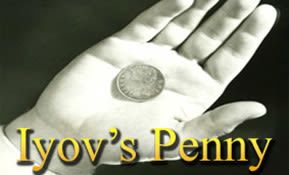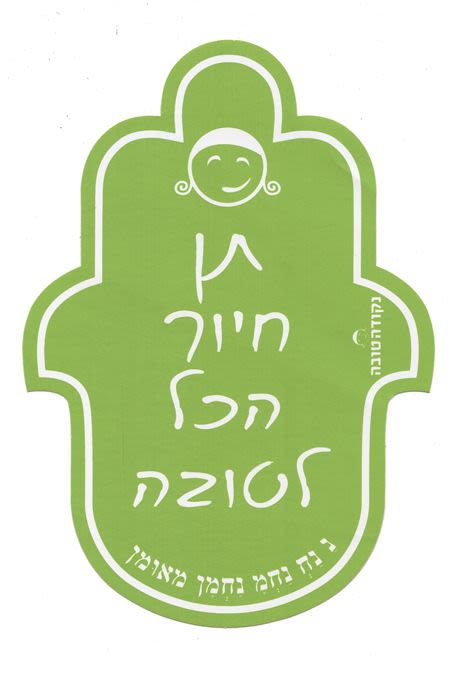
Vayikra: The Revolving Wheel
As “luck” would have it, the wheel of fortune turned in favor of the friend who had remained in his childhood Polish city, while it turned against his friend in...

Parshat Vayikra
“If an individual person from among the people of the land unintentionally sins by violating any of God’s commandments which are prohibited, [then] when the sin that he has committed becomes known to him” (Vayikra 4:27)
* * *
Once, a stranger came in to have yichudut (a private meeting) with the Baal Shem Tov. When they met, the stranger said, “Sholom Aleichem, holy Rebbe.”
“Aleichem Sholom, Reb Yid,” answered the Baal Shem Tov, “What can I do for you?”
“Thank God, I require nothing. I earn a comfortable living and the members of my family are all well. I was just passing through Mezibuzh and said to myself that it was only proper for me to come and pay my respects to the famous Baal Shem Tov. So, thank God, I really don’t have need for your advice or help.”
The Baal Shem Tov looked at his visitor with a strange expression. “If you really don’t require anything of me, let me at least tell you a story.”
The Baal Shem Tov told him the following story:
Once, in a distant Polish city, there lived two close friends. When they were young, the two boys studied together in cheder and later continued studying Talmud together in the Beit Medrash. When they were older, they made a solemn promise to each other that their friendship would last forever.
In time, the two young men married. One married a girl from his own city in Poland and remained there, while the other found his mate in Berditchev and went there to live. Before parting, they promised each other to correspond. But as time went by, and they each became busy with their new lives, and the correspondence slowed down and finally stopped.
As “luck” would have it, the wheel of fortune turned in favor of the friend who had remained in his childhood Polish city, while it turned against his friend in Berditchev.
The latter lost all his property and possessions and was reduced to begging. He then remembered his loyal friend and decided to turn to him for aid.
When the poor friend arrived at his friend’s house he was greeted warmly. The two sat over a pipe reminiscing about the good old days. Then the guest stated his reason for coming. When the host heard of the misfortune that had befallen his friend he announced decisively, “Are we not true friends? We made a promise that our friendship would remain forever. Not only will I help you now but I will share my whole fortune with you equally.”
The poor man gratefully accepted his friend’s generous gesture and returned to Berditchev with a substantial amount of money. He was able to pay back all his debts and to invest in a business. This time luck was with him and he prospered.
Meanwhile his friend back in Poland did not fare well. Now it was he who lost his entire fortune, incurring heavy debts. Finally in desperation, he decided to go to his friend in Berditchev whom he had helped in his hour of need. When he arrived in Berditchev, he heard that his friend had prospered and was exceedingly wealthy.
The poor friend confidently went to his wealthy friend’s home to ask for his help.
“I will never forget how you helped me when I was in similar circumstances,” said the wealthy friend from Berditchev. “However, my conscience will not permit me to help you!”
The now poor friend was shocked at these words and waited for some sort of logical explanation.
The wealthy friend went on. “No, I’m afraid that I cannot help you at all. Don’t you see, when you were fortunate, then I suffered, and now that I’m the fortunate one, you are impoverished. If I were to help you, then our positions would be reversed again. You would become wealthy while I would lose all of my riches. I’m very sorry, but even a close friend cannot be expected to dig his own grave.”
The poor man was forced to return as he had come. But his spirits did not fail him. There were good men in his city that came to his aid and their loans soon put him back on his feet. He was soon able to pay them back and he continued to prosper.
His hard-hearted friend in Berditchev fared poorly, however. His turn now came to suffer poverty and deprivation. Having no one to turn to, he remembered his childhood friend and went to beg for help. The rich friend bore his impoverished comrade no ill will. On the contrary, he again bestowed upon him half of his wealth, assuring him that he had forgiven him for the ungratefulness he had shown when he had approached him in Berditchev. Since he had trusted in God, he said, his help had come from other sources.
The two friends died on the very same day. They were both summoned simultaneously to the Heavenly court. The two cases were carefully tried. The resulting verdict announced that the generous friend was to proceed to Gan Eden while the ungrateful friend was to go to gehinom. When the generous friend heard this decree, he refused to go to Gan Eden without his childhood friend.
The Heavenly court reviewed the two judgments and came up with a solution.
Both souls were to descend again to earth. The generous friend would be a pauper in his next life while his companion would be a rich man. If the latter succeeded in correcting the faults of his previous life he would be pardoned, but this would be his only chance for salvation.
Time passed, and as decreed in Heaven, the pauper appeared at the wealthy man’s home to beg for a donation. He found a watchman posted by the door who refused to let him in. He pleaded loudly just to be admitted for an audience with the master of the house. The wealthy man heard the commotion and came out. When he saw the beggar on his doorstep he commanded his servant to throw him down the stairs.
The poor man, weakened by his many hardships, tumbled down the stairs and died.
The Baal Shem Tov’s visitor listened to the story with mounting interest, and when the Rebbe reached this point the man exclaimed: “Oh my God, I’m the wicked man who hardened his heart to the beggar. It was I who ordered that the man be thrown down the stairs. Oy vey! What is to become of me?”
The Baal Shem Tov gazed at the man and said: “Didn’t you say to me, not twenty minutes ago, that you were not in need of help? Does there exist a person in the world who does not require any help or advice whatsoever?”
The man looked shamefacedly through his tears at the holy Rebbe, the Baal Shem Tov, and pleaded, “Rebbe, is there any hope for me at all? Can I still mend my ways?”
“Yes, you still can,” answered the Baal Shem Tov.
“Go and find the man’s orphaned children and widowed wife. Care for them, support them, and distribute large sums of money to charity. For repentance, prayer and charity can alter unfavorable decrees.”
And so it was.
***
Tzvi Meir Cohn attended Yeshiva Hadar Hatorah in Crown Heights, Brooklyn after completing his university studies in Engineering and Law. While studying at the Yeshiva, he discovered a deep connection to the stories and teachings of the Baal Shem Tov. His many books about the Baal Shem Tov can be found in the Breslev Store. He can be contacted at howard@cohnpatents.com.










Tell us what you think!
Thank you for your comment!
It will be published after approval by the Editor.